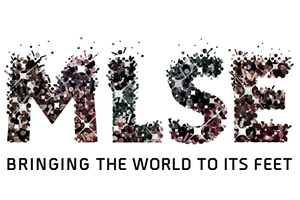It was a muggy August day, one more suited to swimming and picnics than figure skating.
It was a muggy August day, one more suited to swimming and picnics than figure skating. But the breaking news, just six months after the Vancouver Winter Games, was volcanic: Korean figure skater Kim Yu-Na had abruptly fired Canadian coach Brian Orser, the man who’d guided her to a record-shattering Olympic Gold Medal.
Toronto Star sports reporter Randy Starkman led the media coverage of the dramatic split from the beginning, tracking down the major players in what quickly became a skating scandal complicated by cultural differences.
The 50-year-old put The Star out in front on the story that drew hits from around the globe, rich and detailed drawing on the contacts he’d built over three decades covering amateur sports worldwide. The Kim/Orser split was the The Star’s best-read online sports article for three straight days – easily outmuscling NHL preseason news.
Starkman also fielded phone calls and email requests from Korean reporters who believed the Canadian had the inside scoop on Kim’s decision: And he did. He usually does. The Toronto native is one of Canada’s pioneering full-time amateur sports journalists. As such, he’s revered by athletes who sense his compassion, respected by peers who marvel at his work ethic and feared by those who have something to hide.
So it’s not surprising that Starkman is recipient of the 2010 Sports Media Canada George Gross Award for Outstanding Sportswriting. Leading up to, throughout and beyond the Olympic Winter Games at Vancouver this year, Starkman was always a step or two ahead of his competitors with news-breaking stories, insightful perspectives and personal features.
His dedication is paramount, a sense of duty that has enveloped him year-round from the moment he was exposed to Olympic athletes. “I fell in love with the beat when I worked overseas for four years (1984-88) with my future wife Mary Hynes, covering Canadian Olympic athletes at international events for the Athlete Information Bureau run by Bill Hersh,’’ said Starkman.
“It was Matthew Fisher, who’d helped create the legend of the Crazy Canucks (alpine ski racers) while doing that job, who suggested I apply to replace him. I’d always been a pro sports junkie, but that all changed when I started covering Olympic athletes full-time.”
Starkman has since covered 12 Olympic Games for The Star, the pinnacle of the amateur beat, but never stopped tracking athletes, issues and trends between Olympic Games. He won two National Newspaper Awards (one for his world exclusive on former sprinter Ben Johnson’s second positive drug test; the other for his investigation into sports-related head injuries).
He’s also an accomplished features writer, bringing the compelling, personal stories of young athletes to Star readers. “I think I have the best beat in the world,’’ said Starkman, who proudly adorns his newsroom desk with photographs and artwork of daughter Ella. “The athletes are tremendous to deal with. They have all the time in the world for you and they really appreciate the coverage. The big thing to me is they’re willing to open up; they’re willing to bare their souls. That makes for interesting stories.” Yet the stories are not always happy. “The drug scandals have kept me pretty busy over the years,’’ he said, ruefully.
Though he gets discouraged at times – “Olympic sport takes a backseat to all the pro stuff” – he considers it a personal challenge to write his way into prominence. “You have to come up with stories and features that are too interesting to ignore,’’ Starkman said, simply. And he does.
Randy Starkman is must-reading in The Star and a Gold-Medal champion in the eyes of Canada’s amateur athletes.






